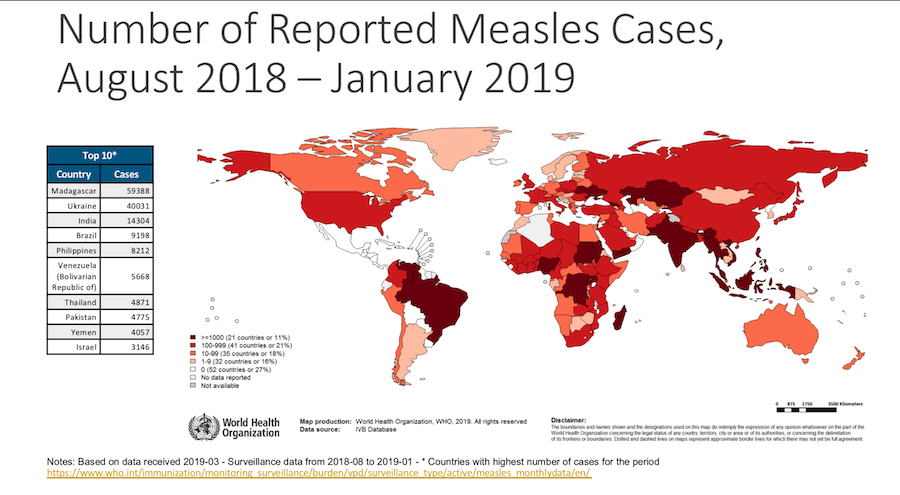
(CN) – Meaningful political support, increased immunization accessibility and strong public health systems are fundamental to eliminating measles on a global scale, according to a new scientific commentary released Monday.
The commentary, published in the Canadian Medical Association Journal, argues that as measles infection rates increase throughout the world, it is more important than ever to stress the importance of creating meaningful strategies and plans to combat the growing medical crisis.
According to the commentary, it is within the areas of politics and health apparatuses that have some of the greatest roles to play in addressing this issue.
Natasha Crowcroft, Chief of Applied Immunization Research and Evaluation at Public Health Ontario and professor at the Dalla Lana School of Public Health, co-authored the commentary and spoke on how important it is to establish political support for stronger public health systems, particularly as it relates to immunizations and vaccines.
“Strengthening systems requires local, national and global political support and resources. Unfortunately, strengthening systems is not very exciting for governments or donors. It’s a hard sell compared with building a new hospital or funding a new vaccine,” Crowcroft said.
Crowcroft maintains, however, that while this may prove challenging in the short run, such support will lead to strong long-term benefits.
“But vaccines are so cost-effective that we take them for granted at our peril. Investing in making our immunization systems stronger is investing in our children and the future health of communities everywhere,” she said.
The commentary highlights how far the measles threat has worsened in recent years. It cites research from the World Health Organization which announced that reported cases of the measles increased 300% in the first quarter of 2019 compared to 2018. This increase, researchers say, is both alarming and dangerous.
Crowcroft suggests that the fears some individuals have towards vaccines is a potential contributor to the increase.
“Vaccine hesitancy is a huge issue – the outbreaks in the Philippines have shown how public trust can be severely shaken by a vaccine safety incident, in that case it was related to a new Dengue vaccine,” Crowcroft said. “Vaccine safety incidents affect parental confidence but are also an example of a need for systems strengthening.”
Crowcroft is hoping that as research and increased political support help to highlight the need to combat the measles through improved health systems, immunization options will become more accessible than ever.
“I look forward to the day when access to immunization is seen in the same way as access to education. Something that is required, benefits the individual, and also benefits communities, all at the same time,” Crowcroft said.

